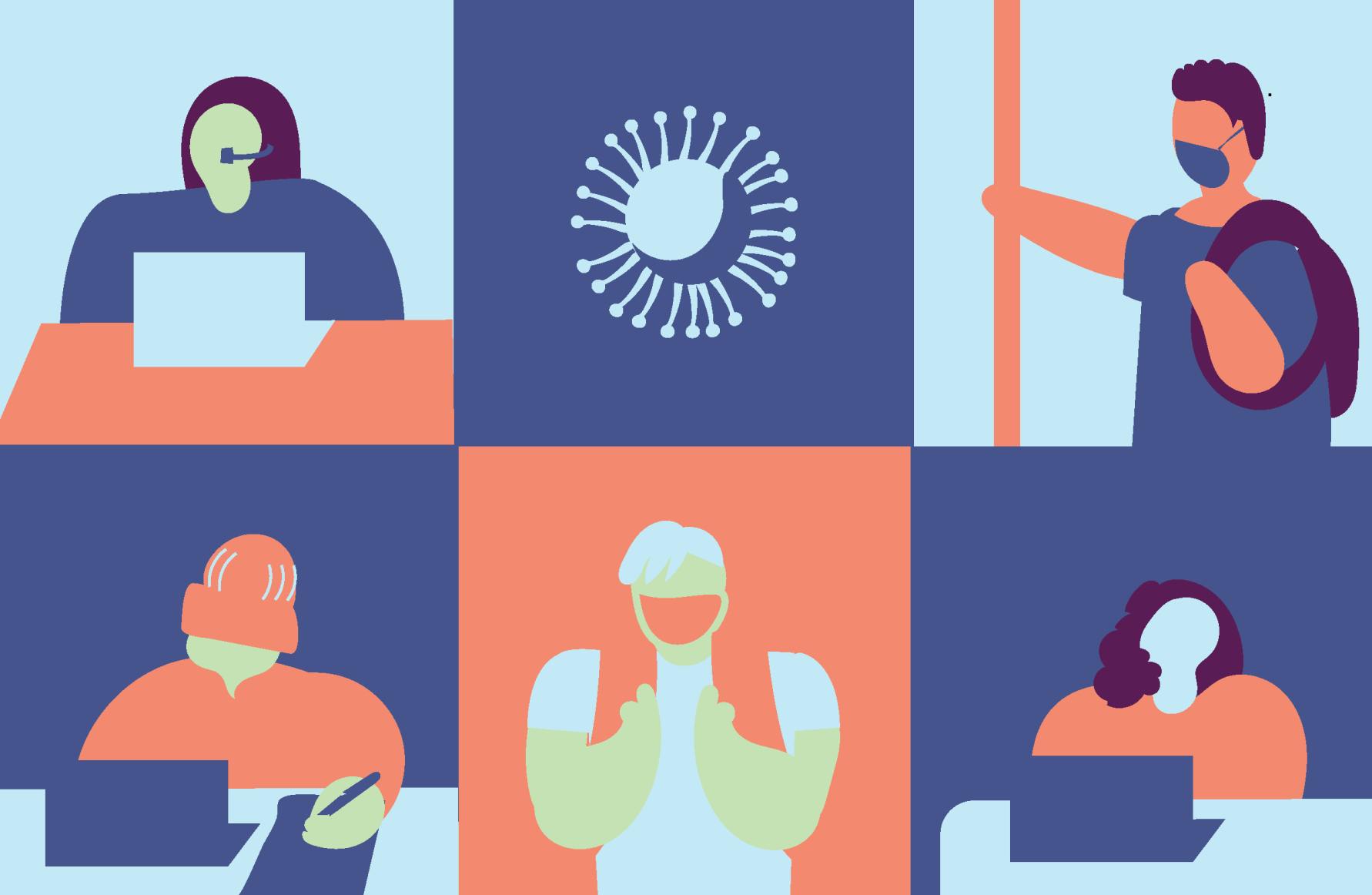
UF’s lab students have had a taste of what’s to come next semester with more in-person classes — disconnect, distanced classrooms and COVID-19 tests.
Lab students have been subject to both online and in-person environments this semester. Despite the steady rise in COVID-19 cases and a vaccine likely not publicly available until next year, more classes will be in person in the Spring — most with online options.
In-person science lab students received emails this month encouraging them to get COVID-19 tests. On Nov. 4, UF Screen, Test and Protect said some lab students tested positive, and it encouraged others to get tests to monitor transmission in classrooms.
“COVID-19 cases have been confirmed in your chemistry lab course and UF Health Screen, Test & Protect is hoping to learn more about them,” the email read.
While UF encouraged getting tested, it wasn’t mandatory this semester; in the Spring, the university will implement mandatory, biweekly COVID-19 testing for students taking in-person classes, and Greek life and on-campus residents.
Despite positive cases in some labs this semester, contact tracers have not found evidence of transmission between students in classroom or lab settings, said UF spokesperson Steve Orlando.
“The request for testing does not indicate any increased risk,” he said.
This isn’t the first time students have received emails like this. The university has made mass efforts to test in-person lab students about six times this semester, Orlando said.
He said encouraging testing for these students is a part of the university’s efforts to proactively identify outbreaks, and it provides useful information as UF prepares for more face-to-face classes.
Organic chemistry lab students also received a Canvas message from their instructor, Dr. Tammy Davidson.
“While you are waiting for the test result, you should continue to attend your lab section if you are feeling well,” the message read.
The email from UF Screen, Test and Protect also encouraged students to continue attending lab as usual. People without symptoms who have the disease can still spread it, according to the CDC.
“It was a little weird how they're expecting us all to get tested, but you can still go to class,” said Dana Houpt, a 20-year-old UF animal sciences and lab student who scheduled a test the day she received the email.
Attending her lab in person is technically mandatory, but her instructors have been forgiving about students missing it — they’re able to watch videos of lab procedures if they don’t attend.
“Nobody has lab partners so that we can stay apart,” she said. “All of our lab spaces are separated from each other person in the class.”
Next semester, Houpt said she’d prefer weekly mandatory COVID-19 tests for in-person students. UF’s announcement Thursday mandates tests for students returning to campus in the Spring, and in-person students must continue to get tested every two weeks.
Students doing online labs — an option for some courses next semester — have faced their own challenges, including paying for lab equipment.
Cheyenne Young, a 20-year-old UF biology junior, took virtual physics and microbiology labs this semester. Both required her to obtain lab equipment to complete assignments at home.
She said the cost of her microbiology lab equipment was covered by the Bright Futures scholarship.
For her physics lab, students received the majority of their materials from UF for free, although she said some students didn’t receive everything they needed. Instructors later resolved the issue.
Based on conversations among over 50 kids in her lab’s group chat, she said it was “a hassle to get everyone whatever they needed for the lab.”
Students also had to purchase or rent — out of pocket — an iOLab Cart, a handheld device that measures things like force, velocity and acceleration. The device costs about $45 to rent and often over $150 to purchase.
Young said chemistry goggles, usually $15 or less, are the only other lab equipment she’s had to purchase herself. Bright Futures wouldn’t cover the iOLab Cart.
“My issue is if you buy it for two semesters, you get a discount,” she said. “But I didn't know if I’d need it for next semester, so I just bought it for this one.”
Young said she’s comfortable doing labs virtually because she can complete it at her own pace without the risk of COVID-19.
“But also, if it was in person, it would be structured and I could have immediate help instead of having to wait a little bit,” she said. “Or having to Google and figure it out myself.”





